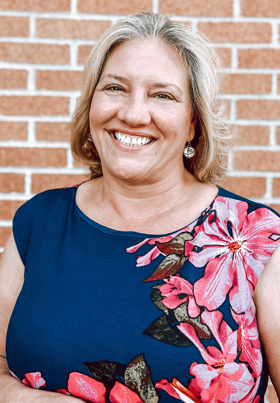
Empowering students, maximum potential, socially responsible citizens.
Those are some of the words “that popped out to me when I first became a principal when I started to dig into learning a little bit about Batavia,” High School Principal Jennifer Wesp said during Tuesday’s Batavia City Schools Board of Education meeting. “And then things like safe and nurturing environment, high moral character, and successfully meeting life’s challenges. So coming into this, I really was focused on how can we make sure that our culture is helping our students to rise to be the best students that they can be? And how can they take hose steps to really show the independence that they have within themselves?
“So I just wanted to say that I really grounded myself in the mission and vision as I started to think about the work that I was going to do,” she said. “So with that, as you know, our strategic plan as a district is really amazing. And this is really the roadmap that we use in the high school to plan all of the things that we’re doing, some of the policies and procedures that we’ve updated, the messaging we’re giving our students.”
Her journey, as she put it, began in the summer with a three days of four-hour meeting of the minds from across district buildings, to share concerns — “there had been some unrest at the end of the year, lots of things where people were talking about different things that were going on” —and some of the needs that staff wanted to discuss with the district at large, she said.
“And it really gave me my first taste of what is Batavia about, what are we looking at, what are we looking to build upon, what are the great things?” she said. “So this kind of helped, just being in the meeting and meeting people across the district to start to formulate some of the things and actions that we are going to take as we work on our goals together.”
Two specific areas emerged from those meetings for more exploration, she said, which was done with interviews and surveys to obtain direct feedback from the “stakeholders” involved. The two areas led to questions:
- In what ways might we be able to handle and best manage student behaviors in class?
- How might we help students emotionally regulate in order to avoid and manage conflicts?
Assistant Principals Omar Hussain and Jessica Korzelius took a part of the presentation and piece of the response to create three goals to help students to progress personally and academically.
The goals involve purposeful reading, a safe and orderly environment, and well managed emotions.
More specifically, the goals mandate that students will:
- Learn strategies to develop/manage/execute emotional regulation levels to increase positive student behaviors in the classroom, school and community;
- Engage in purposeful reading (authentic text), writing and collaborative discussion protocols for 100 minutes a day; and
- Provide a school environment that is safe and orderly for all.
Just what is authentic text? The New York State Education Department defines it (and other forms of media) as being produced from authentic resources and used as "a tool to promote students’ language and culture learning."
"Through authentic resources, students see how words and structures are used in a given cultural context for real-world communicative purposes. When authentic resources are well-chosen and implemented, they can motivate and support students’ target language use and cultural understanding," the SED website states.
Hussain touched on the idea of independence in a way that he thought was “pretty sweet,” and seemingly simple. The school’s co-mayors suggested a program of allowing seniors the option to hang out for a “sunrise/sunset” privilege, captured with fun props in photos at Van Detta Stadium, and done with the assistance of a student parent group. It was an alternative senior study hall that “the underclassmen, they’ll love it too,” he said, and includes a late arrival for seniors and study halls housed in the library, aka the “Senior Lounge.”
Korzelius talked more about strategies to help students “understand themselves better,” and that use restorative practices. Such strategies can involve family members and counselors, and the work is focused on repairing the damage done to oneself and relationships with others.
“There’s the alternative to suspension room,” she said as an example of the restorative piece. “For an overall wellness experience for students.”
There’s a strong emphasis on the positive, all three said, and that includes mental health as part of a social and emotional learning component.
“It’s just really empowering our students to see the leaders in themselves … it’s celebrating students,” Korzelius said.
